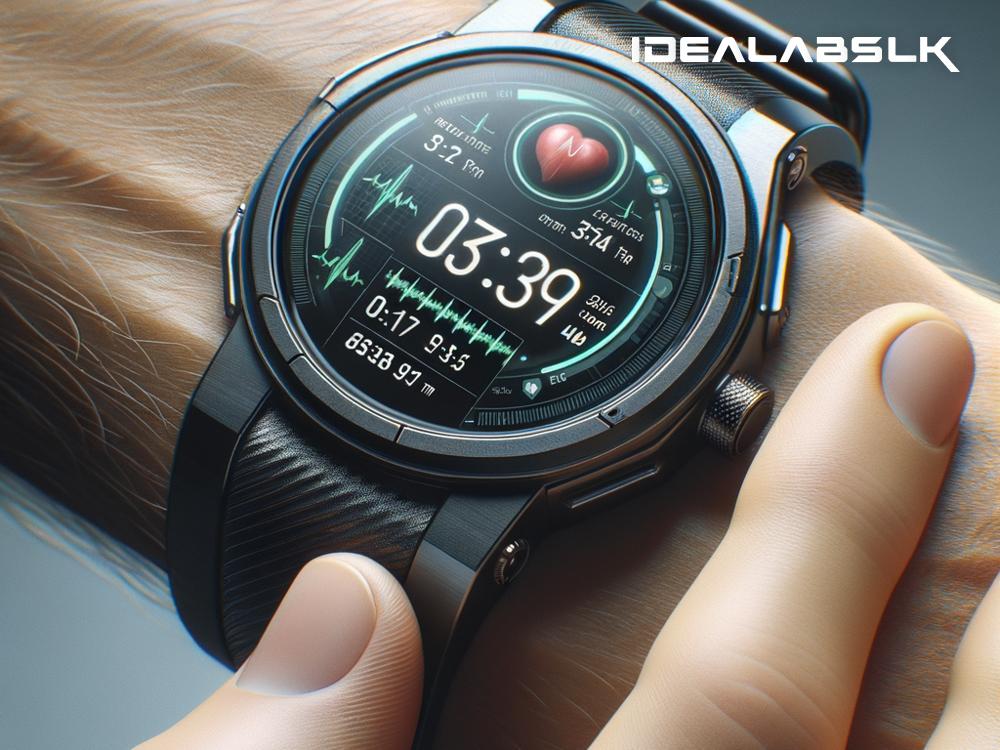AI-Powered Health Monitoring: Smartwatches That Detect Early Signs of Illness
In today’s fast-paced world, keeping up with our health can often take a back seat. However, what if your watch could tell you that you might be getting sick even before you feel the symptoms? Imagine having a personal health assistant right on your wrist, one that watches over you not just when you’re ill but also keeps an eye out for the early signs of illnesses. This is not a scene from a futuristic movie; it’s real and happening now, thanks to AI-powered smartwatches.
What Are AI-Powered Smartwatches?
AI-powered smartwatches are like the regular watches that tell the time but with a twist. They are equipped with advanced technology and artificial intelligence (AI) to monitor various health metrics such as heart rate, temperature, sleep patterns, and even blood oxygen levels. These watches collect data from our bodies, analyze it, and can alert us to potential health issues before they become serious.
How Do They Work?
It all starts with the sensors built into the smartwatches. These sensors track and collect data on our bodily functions continuously. Then, the AI part of the watch comes into play. It takes this data, analyzes it, and looks for patterns or anomalies. For example, if your heart rate spikes unexpectedly or your body temperature begins to rise, the AI might interpret these signs as early indicators of an illness like a fever or an infection.
AI is like a highly intelligent detective that’s always on the lookout, combing through the data to catch clues that point towards potential health issues. This technology learns from your health data over time, making it more personalized and accurate in its predictions.
Real-life Benefits of AI-Powered Smartwatches
-
Early Illness Detection: Imagine catching a cold or flu before it fully hits you. These smartwatches can alert you to the initial changes in your body that suggest an illness is brewing, giving you a head start on treatment and possibly saving you from a full-blown sick day.
-
Monitoring Chronic Conditions: For those with chronic conditions like diabetes or heart disease, AI-powered smartwatches can be life-changing. They provide continuous monitoring, which can help manage these conditions more effectively by alerting users and their doctors to potential issues before they escalate.
-
Lifestyle Changes: These smartwatches don’t just signal when something’s wrong; they can also guide us towards healthier lifestyle choices. By monitoring our sleep patterns, for example, they can suggest the best times to go to sleep or wake up, improving our overall wellbeing.
-
Reducing Hospital Visits: With continuous health monitoring, people might find fewer reasons to visit the doctor for minor issues, as the watch can sometimes offer advice based on the collected data. This doesn’t mean smartwatches can replace doctors, but they can reduce unnecessary visits, saving time and resources.
The Future is Now
We are already seeing AI-powered smartwatches making a significant impact. Companies like Apple, Fitbit, and Samsung are continuously improving their health monitoring features. These advancements include detecting irregular heartbeats that could indicate atrial fibrillation, a serious heart condition, or measuring electrodermal activity to monitor stress levels.
As technology advances, we can expect these devices to become even smarter and more capable. They might soon be able to predict more serious conditions, like heart attacks or strokes, before they happen, offering a new level of preventive healthcare.
Embracing the New Health Guardians
AI-powered smartwatches represent a leap towards a future where technology and healthcare merge to create a proactive approach to our wellbeing. By providing continuous, personalized health monitoring, they can alert us to potential issues early on, guide us towards healthier lifestyle choices, and even help manage chronic conditions.
While these smartwatches are not a replacement for professional medical advice, they serve as a valuable tool in our health toolkit. As we move forward, embracing these technological advancements could mean taking a significant step towards a healthier, more informed society.
In this age of technology, perhaps the most personal device we own, the watch, has transformed into a guardian of our health, illustrating how innovation can lead us into a future where managing our health is not just easier but smarter.

